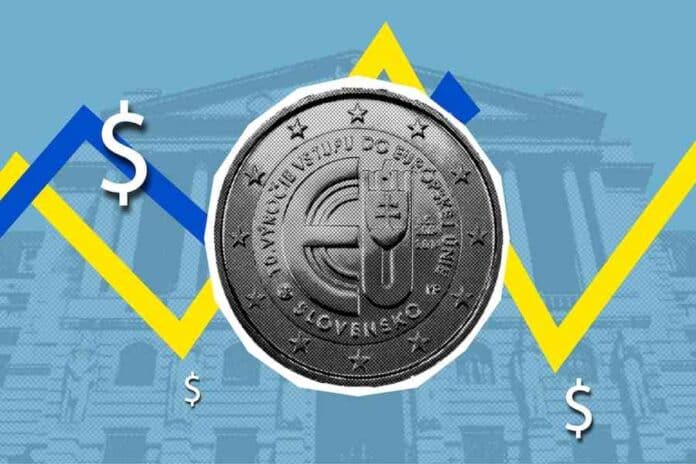When embarking on a journey to Canada, the question of whether to exchange money beforehand becomes a pivotal decision. Navigating the complexities of currency exchange can significantly impact the financial aspects of your trip. To make an informed choice, it’s essential to weigh the pros and cons of exchanging money before departure. This article delves into the considerations surrounding this decision, offering insights into exchange options, potential advantages, drawbacks, and practical tips to ensure a seamless and cost-effective travel experience.
Should I Exchange Money Before I Travel To Canada?
Deciding whether to exchange money before traveling to Canada depends on factors like exchange rates, fees, and personal preferences. Research exchange options, consider transaction costs, and assess your comfort with carrying cash. Ultimately, choose a method that aligns with your financial needs and offers convenience during your trip.
Understanding Currency Exchange
Currency exchange plays a crucial role in international travel, affecting how travelers access funds and manage expenses in a foreign country. At its core, currency exchange involves converting one currency into another based on prevailing exchange rates. These rates are influenced by a multitude of factors, including economic indicators, geopolitical events, interest rates, and market sentiment. Consequently, exchange rates are subject to constant fluctuations, making it important for travelers to be aware of these changes.
When exchanging currency, travelers may encounter two types of exchange rates: the buying rate and the selling rate. The buying rate represents how much of the local currency you’ll need to purchase a unit of your home currency, while the selling rate is the amount you’ll receive in the local currency when selling a unit of your home currency. The difference between these rates constitutes the profit margin for currency exchange providers.
It’s essential to be cautious of hidden fees and charges associated with currency exchange. While some services offer competitive exchange rates, they may offset their apparent advantages by imposing additional fees or commissions. These fees can significantly impact the amount of foreign currency you receive, affecting the overall value of your exchange. As a result, comparing exchange rates and associated costs across different sources becomes crucial in making an informed decision.
In today’s digital age, travelers have various options for exchanging currency, ranging from traditional banks and dedicated currency exchange kiosks to online platforms and prepaid travel cards. Each method comes with its own set of advantages and drawbacks, emphasizing the importance of carefully assessing your individual needs and preferences. By understanding the basics of currency exchange and being aware of the available options, you can navigate the intricacies of international finance more effectively and make the most of your travel funds.
Pros Of Exchanging Money Before Traveling
Exchanging money before embarking on your journey to Canada can offer several compelling advantages that enhance your travel experience. These pros are worth considering as you weigh the decision of whether to exchange currency before your trip:
- Convenience: Having local currency on hand upon arrival provides immediate access to funds for transportation, meals, and other essential expenses. You can navigate your first steps in the country without worrying about locating currency exchange services or ATMs.
- Predictable Expenses: Exchanging money before your trip allows you to lock in exchange rates, which can be particularly beneficial if you’re on a budget. This predictability aids in budgeting accurately and prevents unexpected fluctuations in your travel expenses due to changing exchange rates.
- Limited Reliance on Local Services: By arriving with Canadian dollars, you can reduce your reliance on local ATMs and currency exchange services. This minimizes the time spent searching for these services and can help you avoid potentially long lines or inconvenience, especially during peak travel times.
- Peace of Mind: Carrying local currency offers a sense of security, especially in scenarios where credit card acceptance might be limited. Having cash readily available ensures that you’re prepared for situations where electronic payment methods may not be viable.
- Avoiding Airport Currency Exchange Kiosk Fees: Currency exchange kiosks at airports often charge higher fees and offer less favorable exchange rates due to their location and convenience. Exchanging money before you travel can help you avoid these added costs.
- Flexibility in Remote Areas: If your travel itinerary includes visits to remote or less-developed areas where ATMs or card payment options are limited, having cash on hand can prove invaluable for covering expenses.
- Emergency Situations: Should you encounter unexpected situations, such as technical issues with your cards or limited access to banking services, having local currency can provide a safety net to navigate through such emergencies.
Cons Of Exchanging Money Before Traveling
While exchanging money before your journey to Canada offers certain advantages, there are also notable drawbacks to consider before making your decision. These cons shed light on the potential challenges associated with exchanging currency before you travel:
- Unfavorable Exchange Rates: Currency exchange providers often offer less favorable rates compared to the market’s real-time rates. This can result in receiving fewer Canadian dollars for your home currency, diminishing the overall value of your exchange.
- Additional Fees and Commissions: Even if the exchange rate seems competitive, providers may impose hidden fees or commissions, which can significantly reduce the amount of Canadian currency you receive. These extra costs can offset any perceived benefits of exchanging money in advance.
- Risk of Carrying Cash: Carrying large sums of cash can be risky due to the possibility of loss, theft, or damage. You might also face challenges in ensuring the safety of your cash throughout your journey.
- Lack of Exchange Rate Flexibility: Once you exchange money, you’re locked into the rate you received. If exchange rates improve after your exchange, you won’t benefit from the more favorable rates.
- Missed Opportunities for ATM Withdrawals: Many ATMs in Canada offer competitive exchange rates and may have lower fees compared to currency exchange services. Exchanging money beforehand might cause you to miss out on potentially better rates offered by local ATMs.
Factors To Consider When Deciding
The decision of whether to exchange money before traveling to Canada is influenced by a range of factors that require careful consideration. These factors play a pivotal role in shaping your overall travel experience and financial management. Here are key elements to weigh when making your decision:
- Exchange Rates: Monitor exchange rates closely to assess whether current rates are favorable for exchanging currency. Research historical trends to determine whether rates are likely to improve or worsen before your trip.
- Transaction Fees: Take into account the fees associated with various currency exchange methods. Consider both explicit fees, such as service charges or commissions, as well as hidden fees that could impact the final amount of currency you receive.
- Safety and Security: Reflect on your comfort level with carrying cash during your trip. Assess the safety measures you can put in place to protect your money and explore alternatives like traveler’s checks or prepaid travel cards for added security.
- Travel Itinerary and Needs: Consider the nature of your trip and the destinations you’ll visit. If you plan to explore remote areas or places with limited banking facilities, having local currency on hand could be more practical.
- Payment Methods: Evaluate the payment methods you prefer to use while traveling. Some travelers rely heavily on credit or debit cards, while others find cash more convenient for smaller purchases and local experiences.
Tips For Currency Exchange
Navigating the currency exchange process effectively can optimize your travel finances and enhance your overall experience. Here are valuable tips to keep in mind when exchanging money before traveling to Canada:
Research and Planning:
Begin your research early to understand the current exchange rates and trends. Monitor rate fluctuations and consider exchanging money during periods of favorable rates to maximize your currency conversion.
The mix of Payment Methods:
Rather than relying solely on one method, consider diversifying your payment options. Carry a combination of cash, credit/debit cards, and prepaid travel cards to ensure flexibility in different situations.
Notify Your Bank:
Inform your bank or credit card provider about your travel plans to prevent unexpected card blocks due to suspicious activity. This step ensures that your cards remain functional while abroad.
Avoid Airport Kiosks:
While convenient, currency exchange kiosks at airports often charge higher fees and offer less competitive rates. Opt for alternative exchange options in your home country or at your travel destination.
Use Reputable Providers:
Choose reputable banks, currency exchange services, or online platforms for your currency exchange needs. Research customer reviews and compare rates to avoid hidden fees or suboptimal rates.
Consider Prepaid Travel Cards:
Explore the option of prepaid travel cards, which offer security and ease of use. Load the card with the desired amount in Canadian dollars and use it for transactions without the need for currency conversion.
Monitor Fees:
Thoroughly understand the fee structure associated with each exchange method. Compare service charges, commissions, and foreign transaction fees to make an informed decision.
Conclusion
In the realm of international travel, the decision to exchange money before heading to Canada is a multifaceted one. Balancing the pros and cons, considering factors such as exchange rates, fees, security, and personal preferences, is crucial. As you embark on your journey, remember that the optimal choice is contingent on your unique circumstances. By staying informed, planning ahead, and making thoughtful decisions, you can ensure that your currency exchange strategy aligns with your financial goals and sets the stage for a rewarding travel experience in Canada.
FAQ’s
Can I Exchange Money At The Airport?
Yes, you can exchange money at airport currency exchange kiosks, but they often have higher fees and less favorable rates. Consider other options for better deals.
Is It Better To Use Atms Abroad?
Using local ATMs can offer competitive exchange rates, but be aware of foreign transaction fees from your bank. It’s advisable to inform your bank about your travel plans to avoid card issues.
Should I Exchange All My Money Before Traveling To Canada?
Exchanging all your money beforehand may limit flexibility. Consider exchanging a portion for immediate expenses and using ATMs for the rest as needed.
Are Prepaid Travel Cards A Good Choice?
Prepaid travel cards offer security and convenience, but watch for fees. They’re ideal for budgeting and minimizing currency conversion charges.
Can I Trust Exchange Rate Apps For Accurate Information?
Yes, reputable currency conversion apps provide real-time exchange rates. Use them to estimate costs and compare rates across different sources.












![Bank of America Review [ATMs, Checking, Credit Cards, Loans, Savings] Bank of America Branch](https://www.moneytaskforce.com/wp-content/uploads/2019/08/bank-of-america-branch-100x70.jpg)